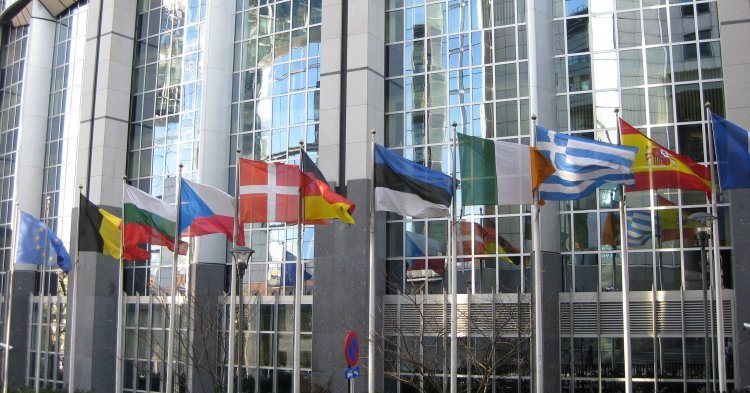When it comes to the term “feminist” in the context of foreign policymaking, people usually are quite hesitant to actually use it, even when it clearly seems to be aligned with the current “Zeitgeist” of the democratic understanding of our European society. The word “feminist” doesn’t mean policy “by women for women’’, but is aiming for a more equal and social approach to resolving conflicts and wars, and supporting social progress throughout the international sphere, or as Germany’s Federal Foreign Office puts it in 2022, “feminist foreign policy is based on the conviction that gender equity and equal participation are preconditions for long-term peace and security in the world. [1]"
In the past years, multiple Western countries, such as France, Sweden or Canada, and various international organizations like the United Nations have committed themselves to different concepts of feminist foreign policy, the concept not having a clear definition, but mostly following the ethical principles of inclusion, cosmopolitanism, security and gender. Yet, even after years of attempts to implement these convictions in domestic and international policies, the impact of these policies seems quite limited, as it can be observed when we take a closer look at how current conflicts, such as the Russian attack of Ukraine or the ongoing crisis between Armenia and Azerbaijan, are handled by the rest of the world, namely mostly without, or at least not enough, taking into consideration the social dimensions of the conflicts, but entirely focussing on hard “manly” power, including a higher propensity of violence and above all a certain willingness to put at risk weaker members of societies safety, for example by shutting down public transport or street lights. And while indeed, the current times might not be ideal for implementing the equality aiming principles of feminist foreign policy, the past has shown us that it would still be worth it, as it can for example be seen in Aida A. Hozics research about the Dayton peace agreement and its outcome for Bosnia-Herzegovina. According to the Associate Professor from the University of Florida, twenty-five years after the Dayton peace agreement that ended the war in Bosnia-Herzegovina, which has always been seen as a big achievement of the Clinton government, the consequences of the “manly” way of handling peace are still very present in the country. As gender was neglected completely during the elaboration of the agreement, the country has become a place of institutionalized divisions and poverty, leading to partial malfunction of administration and a mass exodus of especially the younger generation, exactly because no women or other marginalized individuals participated at the peace negotiations and therefore crucial social dimensions were put apart entirely [2]. This also shows, that feminist foreign policy does not mean to only focus on creating some sort of diversity in elite circles by representation only, but that there actually has to be more importance attributed to “feminine” parts of security in a bigger dimension and in the daily practice of foreign policy, mostly meaning that the necessity to parallelly work on socio-economic problems like access to healthcare, urban strategies or economic safety nets, in order to successfully face current and future crises more prepared and efficiently has to be acknowledged and practiced.
Research done by the university of Cambridge in 2021 has shown that societies which have more gender-equality are also more peaceful, meaning that the promotion of the image of the strong manly warrior and the exclusion and oppression of women have a direct impact on wars and their success. This can also be observed in the current invasion of Ukraine by Russian forces, where the Russian military, which is known for a very harsh attitude towards their soldiers, finds itself confronted by the more gender-equal Ukrainian army that is actually more successful because of its diversity, showing that gender-equality has direct consequences in all different aspects of foreign policy and security [3].
We live in a world, in which it’s inevitable to face geopolitical problems by making hard and “manly” decisions, as security and sovereignty are at risk on a daily basis, and feminist foreign policy does in no mean implement to diminish the importance of these matters, yet it seems primordial, that for a durable future that is worth living for everyone, it is necessary to accord more consideration to socio-economic aspects of security and that the link between gender-equality and war and security policy needs to be investigated further.

Follow the comments: |
|
